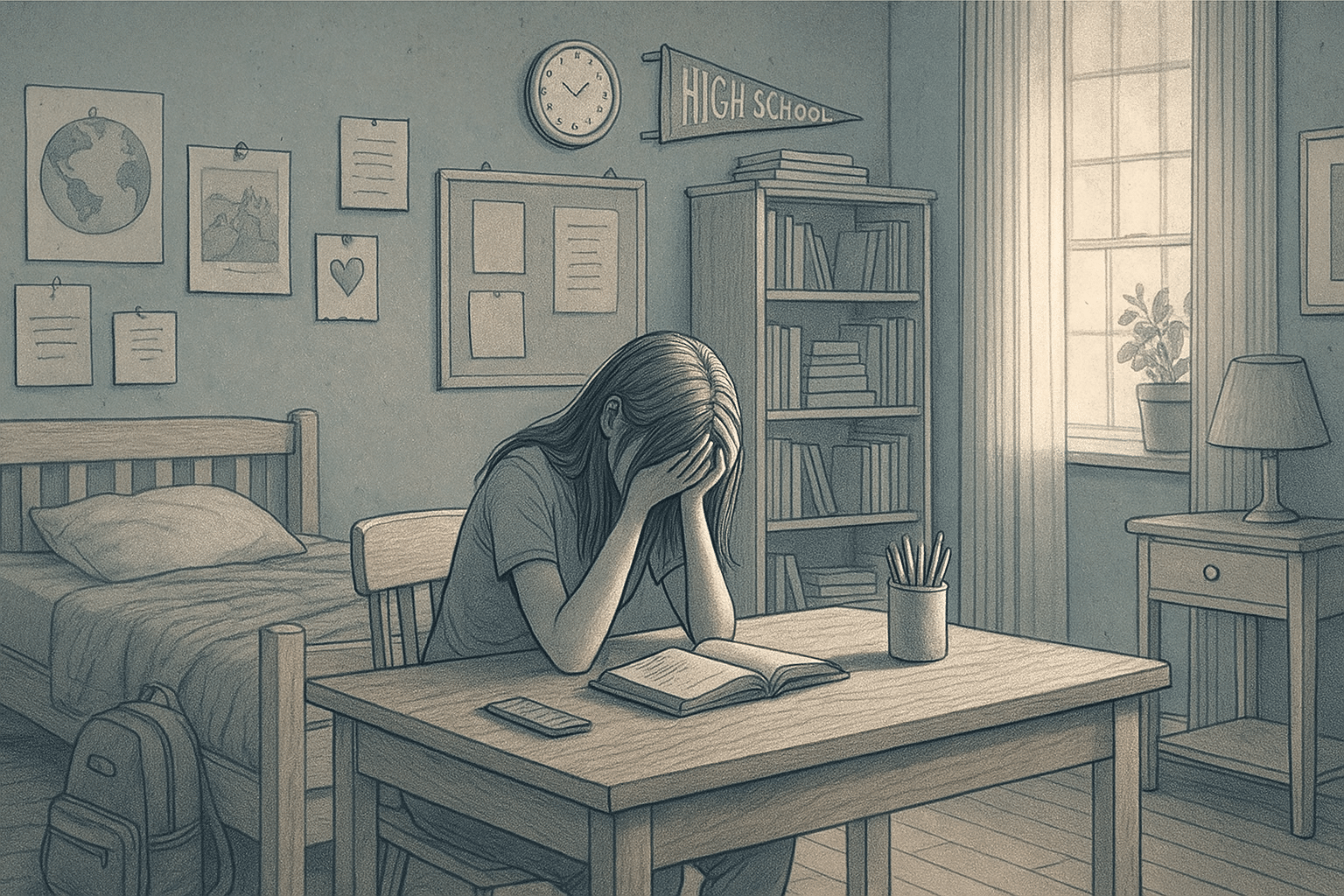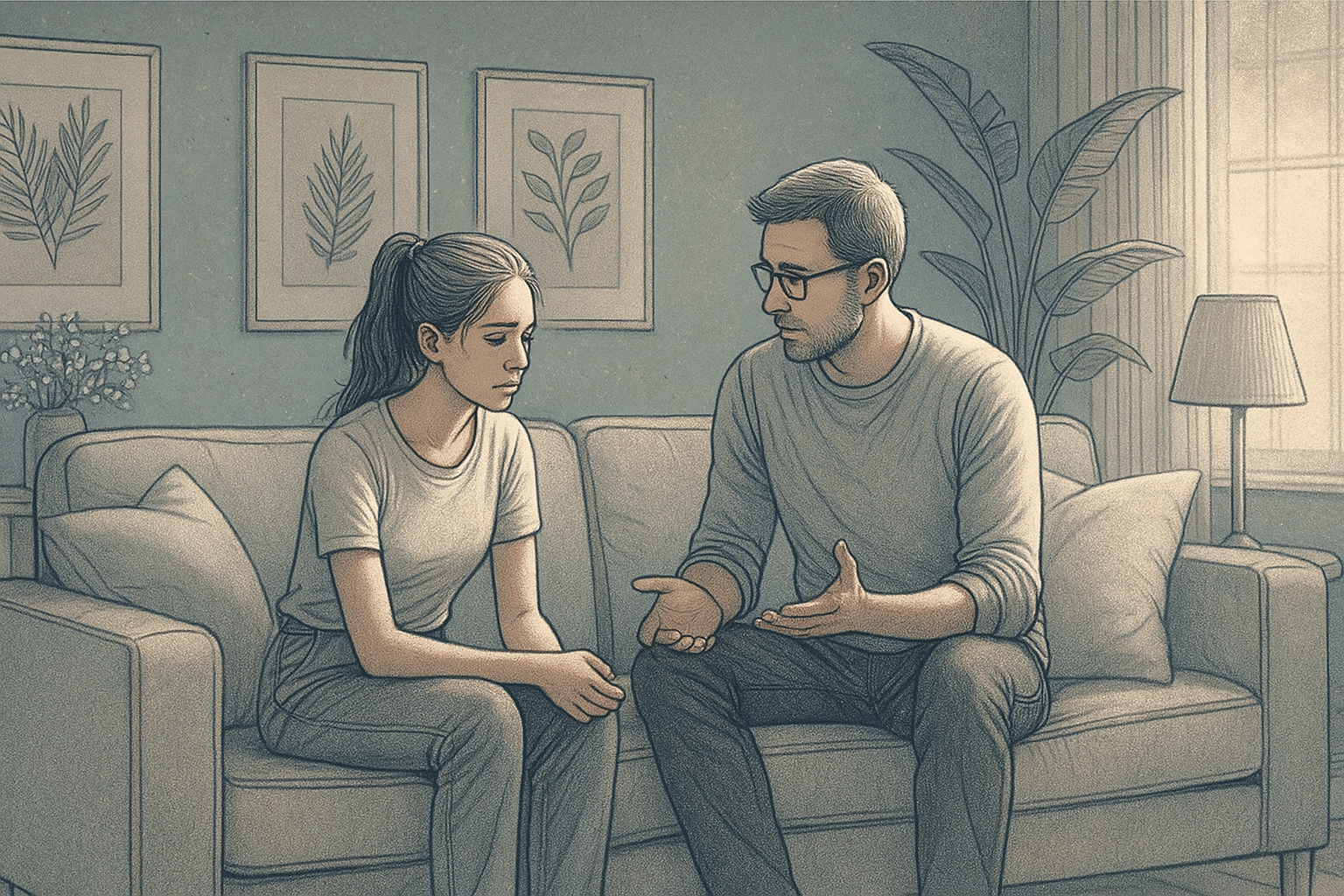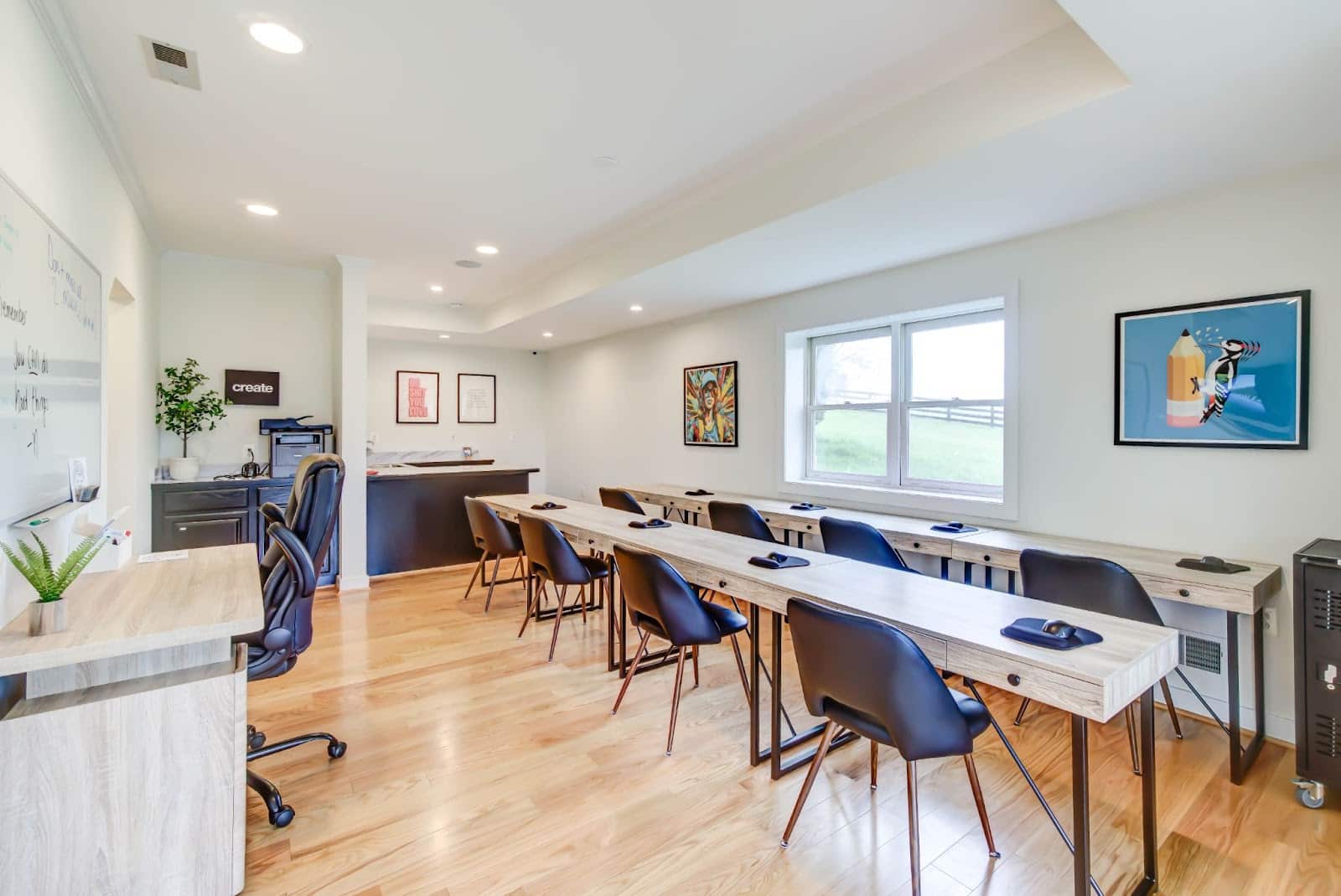Key Takeaways
- Anxiety and depression are the most common mental health struggles among high school students, often hidden behind physical symptoms, mood changes, or academic issues, making early recognition by adults essential.
- Academic pressure can push teens toward burnout as they juggle overloaded schedules, college prep, and perfectionism, causing stress, sleep loss, and emotional exhaustion at an alarming rate.
- Social media fuels stress, with constant comparison, cyberbullying, and FOMO (fear of missing out) damaging self-esteem and increasing anxiety, especially when screen time replaces sleep or real-life connections.
- Support from parents and schools makes a measurable difference through open conversations, digital boundaries, teacher training, and early screening.
- Mission Prep Healthcare offers comprehensive, family-focused adolescent mental health programs, including residential, outpatient, and telehealth services designed to address a broad range of teen challenges with personalized care.
The Hidden Mental Health Epidemic Among Teens
Mental health challenges now affect about one in three high school students, and the numbers keep rising. They’re real conditions that often go unnoticed because teens hide their struggles behind achievements, curated online personas, or behavior misread as rebellion. Despite how common these issues are, only a small portion of teens actually get the treatment they need.
Today’s teens face mounting pressure. School expectations are higher, digital life brings nonstop comparisons, and family support isn’t always steady. Their brains are still developing, making it harder to manage emotions and stress. And in many communities, mental health is still stigmatized, pushing teens to bottle things up instead of reaching out.
The pandemic only made things worse. Lockdowns cut teens off from routines, friends, and support. Over a third reported worsening mental health during this time, and for many, the effects still linger. Even with schools back to normal, the emotional weight hasn’t lifted, proving that lasting support, not just a return to routine, is what teens really need.
Mission Prep Healthcare specializes in mental health treatment for teens aged 12-17, offering residential and outpatient programs for anxiety, depression, trauma, and mood disorders. Our therapies include CBT, DBT, EMDR, and TMS, tailored to each adolescent’s needs.
With a structured, supportive environment, we integrate academic support and family involvement to promote lasting recovery. Our goal is to help teens build resilience and regain confidence in their future.
Mental Health Challenges in High School
1. Anxiety: The Most Common Teen Mental Health Challenge
Anxiety remains the most widespread mental health issue among teens, affecting nearly 32% of adolescents. Unlike occasional stress, clinical anxiety lingers and disrupts daily life. It’s not always obvious; many teens won’t say they’re anxious, but their bodies show it. Headaches, stomach aches, sleep problems, and muscle tension often speak louder than words. These symptoms are easy to misread, especially when anxiety makes teens seem withdrawn, moody, or lazy.
Academic pressure only makes things worse. The drive for perfect grades and impressive resumes turns ordinary schoolwork into a source of constant fear. Many students lose sleep, burn out, or panic over minor setbacks. With schools often celebrating high achievers and linking success to college admissions, anxiety thrives in silence, leaving teens trapped in a loop of stress and exhaustion.
2. Depression: Beyond Normal Teen Mood Swings
Depression runs deeper than typical mood swings. It often shows up as irritability, fatigue, or a loss of interest in things they once enjoyed. These shifts can look like defiance or laziness, but they’re signs of serious internal struggle. Depression clouds thinking, dulls motivation, and weakens memory, all of which are key ingredients for learning. It’s no surprise that grades often drop, and teens start withdrawing from friends and family. Digital habits can also reflect what’s going on; late-night scrolling, dark posts, or searching about suicide are warning signs that shouldn’t be ignored. Academic performance suffers too, not because teens don’t care, but because depression makes it hard to focus, plan, or stay organized. When these struggles are mistaken for a bad attitude, it adds shame to the mix, making the depression even harder to escape.

Academic struggles often mask deeper depression that makes focusing, planning, and staying motivated feel nearly impossible, not just a matter of caring less
3. Overwhelming Academic Pressure
High school students today face intense academic pressure, with top college admissions more competitive than ever. They’re pushed to take multiple AP classes, juggle extracurriculars, and maintain near-perfect GPAs for résumé-building. This constant grind leaves little time for rest or self-discovery, leading to rising stress, anxiety, and burnout.
Many students take on extreme schedules out of fear of falling behind. By junior year, the pressure peaks; sleep and mental health often suffer. Perfectionism only worsens things, turning every grade into a measure of self-worth. Students grow afraid to make mistakes, and learning becomes more about performance than growth.
4. Social Media and Digital Stress
Teens spend hours daily on social media, where likes and followers shape their self-esteem. Platforms play into their need for approval, and the pressure to stay constantly connected fuels anxiety and sleep issues. For many, online life becomes a source of nonstop stress.
Cyberbullying adds another layer. It follows teens everywhere, with nearly 40% reporting they’ve been targeted. The impact is often severe, leaving students anxious, isolated, and overwhelmed. On top of that, FOMO and social comparisons lead many to feel left out or inadequate, even when they’re not. Over time, these digital pressures seriously affect teen mental health.
How Parents Can Support Teen Mental Health
Creating Open Conversations Without Judgment
Teens are more likely to open up when they feel truly heard, not judged or rushed into solutions. Instead of serious sit-down talks, casual chats while walking or driving often work better. Asking open questions like “What’s been on your mind?” helps teens share without pressure or fear of being misunderstood.

Open conversations happen best in comfortable, non-threatening moments where teens feel truly heard rather than judged or pressured into quick solutions.
When and How to Seek Professional Help
If a teen shows ongoing signs of distress, like major mood shifts, social withdrawal, or talk of hopelessness, it may be time to bring in a professional. Framing therapy as a tool to gain coping skills, not as a punishment, helps reduce resistance. Letting them help choose the provider makes the process feel more respectful and collaborative.
Setting Healthy Digital Boundaries at Home
Too much screen time, especially late at night, can hurt sleep and increase anxiety. Creating tech-free zones during meals and keeping devices out of bedrooms supports mental health. What works best isn’t just rules but modeling healthy tech habits and having ongoing conversations about digital wellbeing.
What Schools Can Do to Address the Crisis
Implementing Mental Health Screening Programs
Screening all students with short mental health questionnaires helps schools catch issues early, often before they become crises. These tools spot kids who might not speak up and lead to quicker support when done with care, consent, and proper follow-up.
Training Teachers to Recognize Warning Signs
Since teachers see students daily, they’re in a unique position to spot subtle warning signs like sudden mood changes, social withdrawal, or academic dips. Training programs equip educators to recognize these shifts and respond appropriately. This helps reach students who may never ask for help but clearly need it.
Why Mission Prep is Your Partner for Teen Mental Health

Mission Prep’s learning spaces feel more like home than traditional clinical settings, creating the comfort and calm that teens need to focus on healing and growth.
Navigating mental health challenges during high school can feel overwhelming for both teens and families. That’s why our approach centers on lasting healing and resilience through a close-knit, family-oriented partnership.
Mission Prep offers residential, outpatient, and telehealth programs exclusively for adolescents aged 12 to 17. These programs are designed to support teens facing anxiety, depression, trauma, mood disorders, technology overuse, and difficulties in school or social settings. Our care focuses on the individual while including the family every step of the way to create meaningful, sustainable change.
What makes us different is how we deliver support. We involve teens and families in shaping their care to build a sense of agency. Our method allows teens to gradually engage with real-life challenges, building emotional strength and healthy coping skills in a safe, structured way.
We also provide families with the tools and guidance needed to support their teens through recovery. Healing doesn’t happen in isolation; it takes the whole family growing together. Our licensed spaces are designed to feel like home, offering comfort, safety, and a sense of calm that encourages progress.
Every part of our program is intentionally built to prepare teens for what lies ahead, clinically, emotionally, and academically. When you choose Mission Prep, you’re working with a team that understands your teen’s challenges and stands beside your family with care and experience.
Frequently Asked Questions (FAQ)
How can I tell if my teen’s behavior is normal adolescence or a mental health issue?
Mood swings and seeking independence are common in teens, but if changes last over 2 weeks and affect daily life, like dropping grades, withdrawal, or talk of self-harm, it may point to a deeper issue. Pay attention to patterns, not just isolated behavior.
What should I do if my teen refuses to talk about their mental health?
Start conversations in relaxed moments like car rides or walks, and share your own emotions to make it easier for them to open up. If they stay closed off, help them connect with trusted adults or check out mental health apps or platforms they can use privately.
Are mental health issues in high school students treatable?
Yes, conditions like depression and anxiety respond well to therapy and, when needed, medication. Early support leads to better outcomes, so it’s important not to wait and hope things resolve on their own.
How can I help my teen while respecting their privacy?
Set firm limits around safety, but give them space where appropriate. Let them know you’re there, but also give room to manage their emotions privately when it’s safe to do so.
What kinds of mental health programs does Mission Prep Healthcare offer?
Mission Prep provides residential, outpatient, and telehealth treatment programs tailored for adolescents ages 12–17. Their services address anxiety, depression, trauma, mood disorders, technology dependence, and academic/social challenges through personalized and family-focused care.















